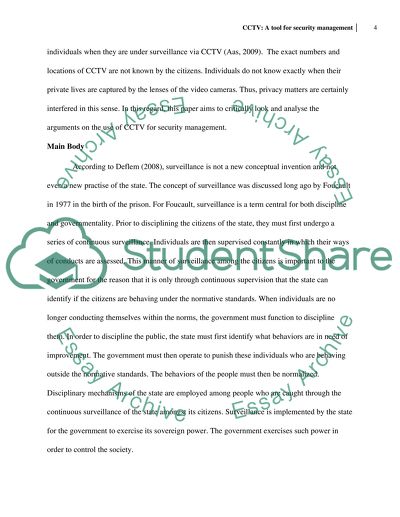Cite this document
(“CCTV: A Tool for Security Management Essay Example | Topics and Well Written Essays - 3000 words”, n.d.)
Retrieved from https://studentshare.org/sociology/1396186-cctv-a-tool-for-security-management
Retrieved from https://studentshare.org/sociology/1396186-cctv-a-tool-for-security-management
(CCTV: A Tool for Security Management Essay Example | Topics and Well Written Essays - 3000 Words)
https://studentshare.org/sociology/1396186-cctv-a-tool-for-security-management.
https://studentshare.org/sociology/1396186-cctv-a-tool-for-security-management.
“CCTV: A Tool for Security Management Essay Example | Topics and Well Written Essays - 3000 Words”, n.d. https://studentshare.org/sociology/1396186-cctv-a-tool-for-security-management.


